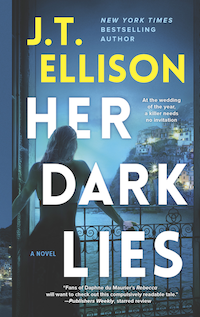Interviewed by Janice Gable Bashman for International Thriller Writers Big Thrill Magazine
In your latest thriller THE COLD ROOM, you introduce the reader to the Conductor, a serial killer who keeps his victims in glass coffins until they starve to death. Draw us into the world of the Conductor and your protagonist, Homicide Detective Taylor Jackson.
The Conductor loves classical music, opera, and art. How much more normal could you get, right? There’s just one catch. He’s also a burgeoning necrosadist, with online friends he shares his fantasies with. Taylor Jackson, recently busted back to Detective by the Office of Professional Accountability, is trying to save face and solve one of the strangest murders she’s seen in years. And to top it all off, her fiancée, FBI profiler Dr. John Baldwin, believes he has seen this scenario before, on an international scale.
What makes Detective Taylor Jackson such a strong woman, and how does this help her catch the Conductor?
Taylor is a woman of convictions, of morality, of a code. She’s a hero, flawed but with incalculable focus. She enjoys a challenge, isn’t afraid of much, and has a badge and gun to back her up when times get tough. She’s also very stubborn and enjoys intrigue, and the Conductor presents a puzzle she’s not seen before. The fact that Baldwin has a foot in the Conductor’s world already is a help too – she has an excuse to work with him again, something she always enjoys.
Why is the Conductor such a fascinating serial killer?
His MO is relatively rare. He’s not interested in hurting women, which is a bit of a departure from what we normally see – usually fictional serial killers are psychopaths who are brilliant dynamos, always a step ahead of the cops. Gavin Adler is a regular Joe, making mistakes, testing the waters. I almost felt sorry for him – he’s driven by this compulsion to have sex with dead women, and he’s not sure how to satisfy that urge. He’s obviously a sociopath, unable to feel emotions properly, but he’s got human edges, like the adoration he feels toward his cat, Art, and his love for music and art. A well-rounded killer, our Gavin.
You stated THE COLD ROOM was the “by far the most difficult book [you’ve] ever written”—both structurally and emotionally? Explain.
For starters, the research on this book was both fascinating and repulsive. I started having rather horrible nightmares soon after I started the book. The story is huge in scope – spread among four law enforcement agencies and two continents, with new characters in Taylor’s life, and many, many plot shifts. I was trying to avoid falling into the trap where people would read it and say, “Oh, come on. No way.” So it was a challenge to write, and then at the eleventh hour, the book was pulled. We changed the release date, title, art, all the outside components, and I went back into the manuscript to flesh out some of Taylor’s story. I’m so glad we did, because the book ended up being so much stronger than it would have been. Lesson learned: always listen to your editor.
A professor in college told you you’d “never get published.” It was years before you started writing again and proved her wrong. What did you learn from this experience, besides the obvious response—that she was wrong?
Never, ever, let someone outside of your world derail your dreams. I respected that particular professor, and though she crushed me, looking back I see she was right. My voice was there, but I lacked that special something that makes writers into authors. But if she’d encouraged me just a little, I might have found that spark sooner. It’s the nature of the artist to need some bits of affirmation, but sometimes we can overemphasize that part of our lives. I advise all new authors to listen to their gut, and focus on their dreams.
You stated, “it takes a very specific personality type to make it as a cop, especially a homicide detective. The horror and depravity that they see every day . . . anything I write pales against the realities they live with day to day. There is endless capacity for evil in people. It’s such an honor to write their stories, and I strive to make the non-law enforcement world understand the people who keep them safe.” Why is this so important to you, and how do you think this comes across in your work?
After you do a few ride-alongs with law enforcement, you will be hard pressed to see them as anything less than heroes. I wanted to tell their stories, as accurately as I could, so the general public would have some idea of just how intense their jobs are. Cops get a bad rap in the press, with accusations of brutality and other illegalities, but 99% of cops are decent, honest, hardworking, long-suffering men and women who are just trying to keep the rest of us safe.
What’s next for J.T. Ellison?
The Immortals, book five in the series, will be out in October 2010. And I’m frantically running into my deadline for book six, The Pretender, which is a sequel to 14. There are a few shorts stories debuting this year as well. All that’s on my website, JTEllison.com.
What advice can you give aspiring thriller writers?
Read everything you can get your hands on, and work hard to develop your writing habit.


